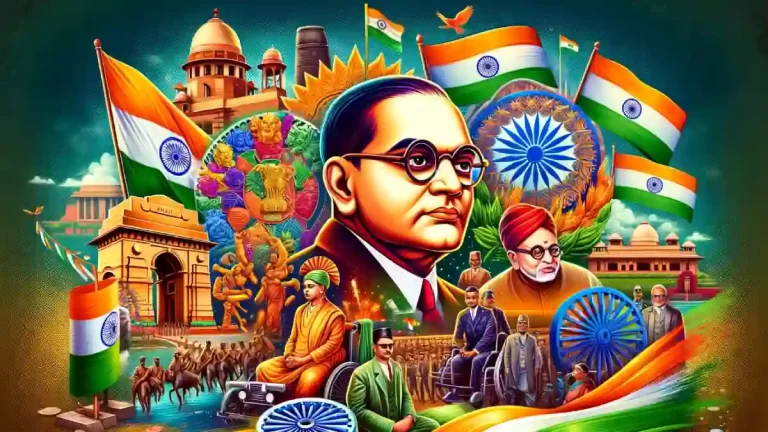Historical Significance and Evolution of Republic Day

Discover the historical significance of Republic Day in India, highlighting its role in the adoption of the Indian Constitution and the invaluable contributions of Dr. B.R. Ambedkar in shaping the nation’s destiny.
Introduction
Republic Day, celebrated every year on January 26th in India, marks a pivotal moment in the country’s history. It commemorates the day in 1950 when the Indian Constitution came into effect, transitioning India into a newly sovereign republic. This article delves into the rich history of Republic Day, underscoring its significance in the adoption of the Indian Constitution, and highlights the instrumental role of key figures like Dr. B.R. Ambedkar.
The Genesis of Republic Day: A Historical Perspective
The journey towards India’s Republic Day began long before the actual date. The struggle for independence laid the foundation for a day that would eventually symbolize India’s sovereignty. Following independence from British rule on August 15, 1947, it was crucial to establish a constitution that reflected India’s values and aspirations. This need led to the formation of the Constituent Assembly, tasked with drafting the constitution.
Crafting the Constitution: Dr. B.R. Ambedkar’s Legacy
Dr. Bhimrao Ramji Ambedkar, often hailed as the chief architect of the Indian Constitution, played a central role in its formulation. His expertise in law and passionate advocacy for social justice guided the drafting process. Dr. Ambedkar’s contributions were pivotal in ensuring that the constitution upheld principles of justice, liberty, equality, and fraternity, mirroring the values of a diverse and inclusive India.
Adoption of the Constitution: A Landmark in Indian History
January 26th was chosen as Republic Day to honor the 1930 declaration of Purna Swaraj (complete independence) by the Indian National Congress. On this day in 1950, the Indian Constitution came into effect, replacing the Government of India Act (1935) as the governing document of India. This event marked the birth of the Indian Republic, with Dr. Rajendra Prasad taking oath as the first President of India.
Republic Day Celebrations: A Reflection of Indian Unity and Diversity
Republic Day celebrations are a grand display of India’s cultural diversity and military prowess. The main event in New Delhi includes a parade showcasing India’s defense capabilities and cultural heritage. Tableaus from different states represent the cultural and historical richness of India, while the beating retreat ceremony officially concludes the festivities. Read More: India’s Republic Day: Diverse Celebrations & New Delhi Parade.
Republic Day not only commemorates the historical day when India became a republic but also celebrates the spirit of independent India. It’s a day to remember the sacrifices of the freedom fighters and the visionary leadership of Dr. B.R. Ambedkar, whose tireless efforts in drafting the constitution laid the foundation for the world’s largest democracy. As we celebrate Republic Day, we reaffirm our commitment to the values enshrined in our constitution and pledge to uphold the unity and integrity of our nation.





प्रातिक्रिया दे